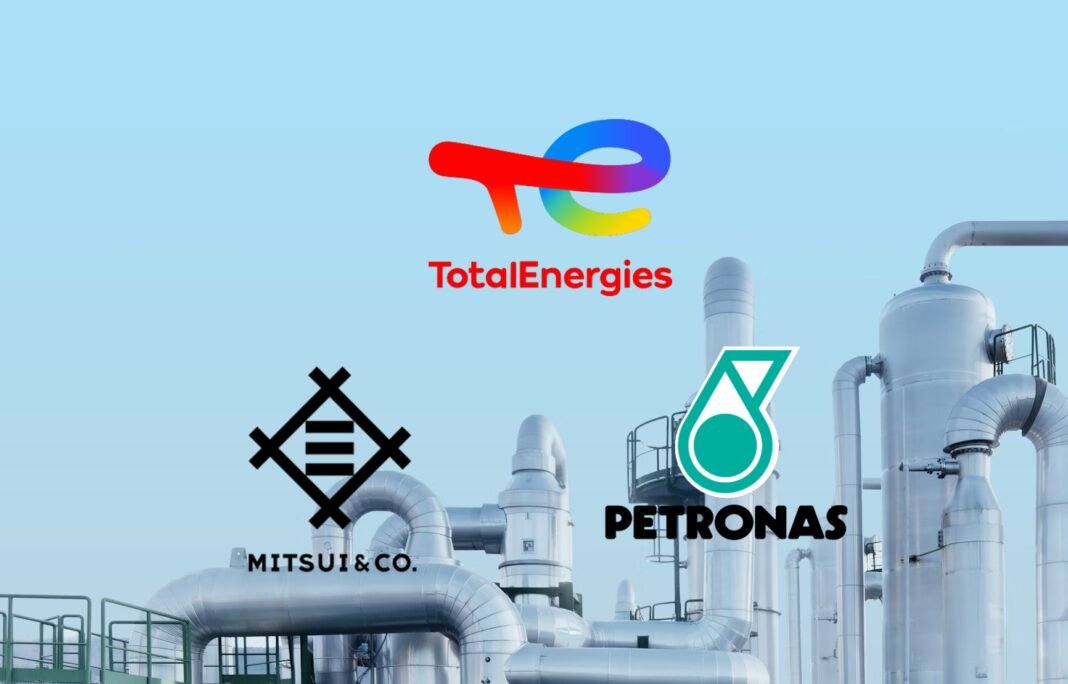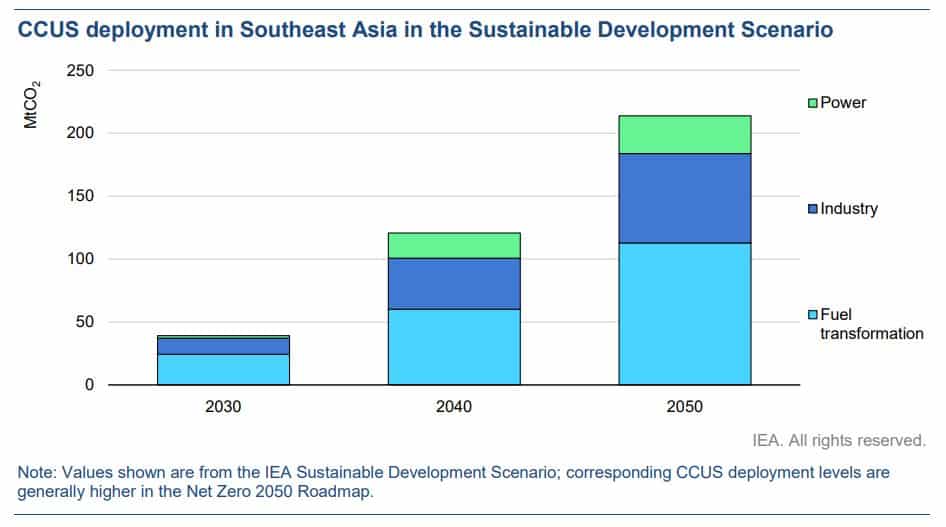Energy major TotalEnergies has partnered with Petronas and Mitsui to develop a Carbon Capture and Storage (CCS) hub in Southeast Asia.
The partners will assess several carbon storage sites in the Malay basin, including both saline aquifers and depleted offshore fields.
The agreement will take forward the initiatives outlined in their signed Memoranda of Understanding in 2022.
Tri-Party Deal to Decarbonize Asian Customers
The deal aims to develop a carbon merchant storage service to decarbonize industrial customers in Southeast Asia, one of the fastest growing regions of the world.
Estimates of carbon storage capacity in the region are uncertain. But analysis shows that the theoretical capacity to store CO2 may surpass the region’s needs. Most of this capacity is in deep saline formations.
CCS can help the fast-growing economies of Southeast Asia be on track to net zero emissions. According to the International Energy Agency, about 90% of energy demand growth of the region since 2000 has been met by fossil fuels. It is also home to large coal and liquefied natural gas exporters.
Thus, CCS technology can be significant in helping Southeast Asia transition to an energy mix that aligns with climate goals.
Carbon capture in the region needs to reach at least 35 Mt CO2 in 2030 to be in line with the 2015 Paris Agreement goals. By 2050, that capacity must exceed 200 Mt, with CCS deployed at scale across the fuel, industry and power sectors.
However, developing a CCS value chain for hard-to-abate emissions in the region needs a specific regulatory framework and considerable investment.
Achieving the level of CCS deployment shown in the chart above will need about $1 billion each year by 2030. This financial requirement needs international support, more debt financing, and substantial private-sector investment.
First-of-its-Kind CCS Solution
The tri-party agreement among TotalEnergies, Mitsui, and Petronas will establish a “first-of-its-kind integrated CCS solution for industries in the Asia-Pacific region”, according to Petronas.
Malaysia’s state-owned firm further noted that the deal shows Petronas’ commitment to turn the country into a regional CCS hub.
The strategic partnership involves all aspects of CCS development in the region, including:
- Studying potential CO2 storage sites,
- Assessing maturing depleted fields and saline aquifiers for storage,
- Identifying potential customers,
- Determining the best technical means to transport captured CO2 from regional industrial hubs to Malaysia, and
- Creating the most appropriate legal and business structure for CCS commercialization in Malaysia.
Remarking on the agreement, TotalEnergies CEO Patrick Pouyanné said that:
“We will bring to the partnership our strong CCS expertise, anchored in Europe with a first integrated project in Norway due to start next year and several other projects that will contribute to meeting our carbon storage capacity target of ten million tonnes per year by 2030.”
For the Japanese oil firm, Mitsui will use its “expertise in the oil and gas upstream activities and extensive business networks” to contribute to the CCS hub project in Southeast Asia.
TotalEnergies also entered into a separate deal with Petronas’ renewable energy subsidiary Gentari. They will develop renewable energy projects in the Asia-Pacific region.
Their goal is to jointly create the 100 MW Pleasant Hills solar project in Australia and generate low-carbon electricity from it to deliver to Roma field’s gas production and processing facilities. This project will help cut the emissions of Gladstone LNG, in which both energy majors hold a stake.
The planned volumes and dates of the Malaysian CCS hub project weren’t revealed.


